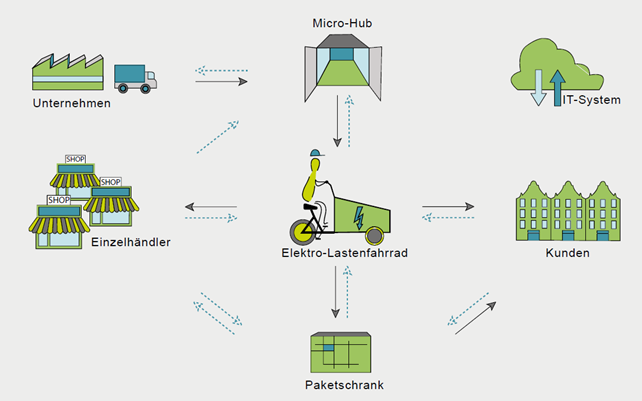The first important step was defining of the project’s objectives and framework conditions. Checks were made to determine different action fields in facing the logistics problems.
The various important elements of the logistics infrastructure were discovered and detailed. For instance, a micro-logistics hub was seen as being key to reducing the traffic congestion issues. This hub, located slightly outside of the city centre, would be the initial location of all parcels and packages for delivery into the city. Local logistics companies would then be responsible for the delivery of these parcels to package stations within the city centre. A local company, Pakadoo, became the most important cog in this stage, whose innovative software ensured logistics could be run smoothly despite the large-scale of the hub operations.
Another highlighted aspect was the ensuring of an environmentally friendly ‘last mile’ delivery stage. To this end, e-cargo bikes were made available for rental for free for the local businesses, meaning they could pick up the parcels with ease.
From early on, the importance of identifying suitable (local) stakeholders was understood. This focus eventually led to the formation of the project consortium, built up of all the stakeholders involved in the various relevant fields of logistical infrastructure. This consortium was also vocal in the designing of the project.
Another key step was ensuring funding opportunities were found to ensure the longevity of the project. Financial planning was conducted, as well as applications for subsidies (incl. coordination with the subsidy provider). In the end funding was split 50:50 between the state of Baden-Württemberg and the private sector companies involved in the created consortium.











